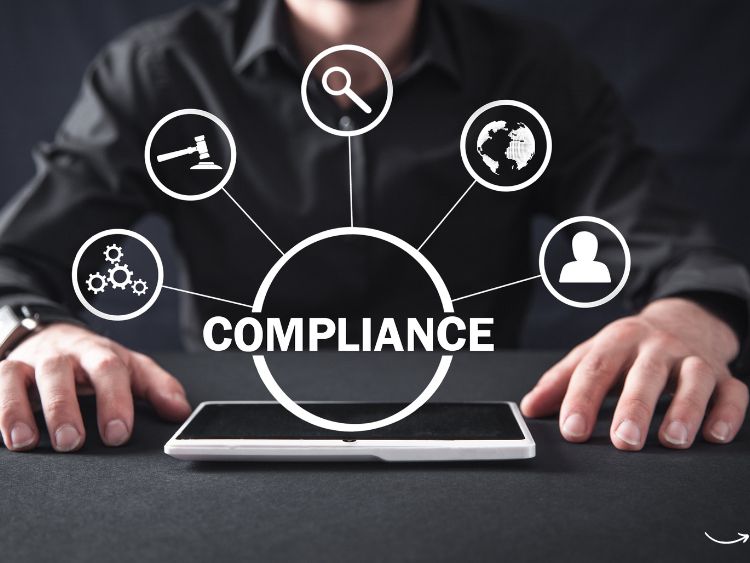Navigating the maze of labor laws can be daunting for businesses, especially when the stakes are so high. Labor compliance services play a pivotal role in helping companies adhere to these regulations, ensuring a harmonious and legally compliant work environment. But what exactly are labor compliance services, and why are they so crucial?
Understanding Labor Compliance Services
Labor compliance services encompass a wide range of activities designed to ensure that businesses meet all legal requirements related to employment. These services help organizations avoid legal pitfalls, enhance their reputation, and create a fair and safe workplace. Let’s dive into the key components of labor compliance services.
Key Components of Labor Compliance Services
- Regulatory Guidance: Experts provide up-to-date information on federal, state, and local labor laws.
- Policy Development: Crafting company policies that align with legal standards.
- Training Programs: Educating employees and management on compliance-related topics.
- Audits and Assessments: Regular checks to ensure ongoing compliance.
- Reporting and Documentation: Maintaining accurate records to prove compliance.
Why Labor Compliance Services Matter
Businesses that fail to comply with labor laws risk facing severe penalties, including hefty fines and legal actions. Moreover, non-compliance can damage a company’s reputation and affect employee morale. By investing in labor compliance services, companies can mitigate these risks and focus on growth and productivity.
The Role of Labor Compliance Services in Modern Businesses
Enhancing Legal Compliance
Labor laws are constantly evolving, and keeping up with these changes can be challenging. Labor compliance services provide businesses with the expertise needed to stay abreast of legal updates and implement necessary changes swiftly. This proactive approach helps companies avoid violations and maintain a good standing with regulatory bodies.
Protecting Employee Rights
One of the primary goals of labor compliance services is to protect employee rights. These services ensure that companies adhere to fair labor practices, such as minimum wage laws, overtime pay, and safe working conditions. By prioritizing employee rights, businesses can foster a positive work environment and improve employee satisfaction.
Streamlining Processes
Labor compliance services help businesses streamline their HR processes by implementing efficient compliance management systems. These systems automate various tasks, such as tracking employee hours, managing payroll, and maintaining compliance records. This automation reduces the administrative burden on HR departments and minimizes the risk of human error.
Building a Positive Reputation
A company’s reputation is one of its most valuable assets. Businesses known for adhering to labor laws and treating their employees fairly are more likely to attract top talent and loyal customers. Compliance services help companies build and maintain a positive reputation by ensuring ethical business practices.
How Labor Compliance Services Work
Initial Assessment
The process begins with an initial assessment, where compliance experts review the company’s current practices and identify areas of non-compliance. This assessment helps create a tailored compliance plan that addresses the specific needs of the business.
Policy Development and Implementation
Once the assessment is complete, the next step is to develop and implement policies that align with legal requirements. This includes drafting employee handbooks, creating training programs, and setting up compliance management systems.
Ongoing Monitoring and Audits
Labor compliance is not a one-time task; it requires continuous monitoring and regular audits. Compliance experts conduct periodic reviews to ensure that the company remains compliant and to identify any new areas of concern.
Training and Education
Education is a critical component of labor compliance. Companies must ensure that their employees and management are aware of compliance requirements and understand their roles in maintaining compliance. Training programs can be conducted in-person or online and should be updated regularly to reflect changes in labor laws.
Reporting and Documentation
Maintaining accurate records is essential for proving compliance in the event of an audit or legal inquiry. Labor compliance services help businesses set up efficient documentation processes, ensuring that all necessary records are kept up-to-date and easily accessible.
Common Challenges in Labor Compliance
Keeping Up with Legal Changes
Labor laws are complex and frequently updated. Staying informed about these changes and understanding their implications can be challenging for businesses. Labor compliance services provide the expertise needed to navigate these changes effectively.
Managing Multistate Compliance
For businesses operating in multiple states, managing compliance can be particularly challenging. Each state has its own set of labor laws, and ensuring compliance across all locations requires a comprehensive understanding of these regulations. Labor compliance can help businesses develop strategies to manage multistate compliance efficiently.
Balancing Compliance and Business Goals
Businesses often struggle to balance compliance requirements with their operational goals. Labor compliance services can help companies integrate compliance into their overall business strategy, ensuring that they meet legal requirements without compromising their objectives.
FAQs About Labor Compliance Services
What are labor compliance services?
Labor compliance help businesses adhere to labor laws and regulations. They include regulatory guidance, policy development, training programs, audits, and documentation.
Why are labor compliance services important?
They protect businesses from legal penalties, enhance reputation, and ensure a fair and safe workplace.
How do labor compliance services benefit employees?
These services ensure that employees’ rights are protected, leading to a positive work environment and improved satisfaction.
What challenges do businesses face in labor compliance?
Keeping up with legal changes, managing multistate compliance, and balancing compliance with business goals are common challenges.
How can labor compliance services help with multistate compliance?
They provide expertise in navigating different state regulations and developing strategies to ensure compliance across all locations.
Conclusion
Labor compliance services are essential for businesses aiming to create a legally compliant and ethical workplace. By investing in these services, companies can avoid legal pitfalls, protect employee rights, and build a positive reputation. In a constantly evolving legal landscape, compliance services provide the expertise and support businesses need to stay ahead of the curve and focus on what they do best—growing and thriving in their industry.

